Contents
As an affiliate marketer, links are a vital aspect of your business. However, search engines, such as Google, blocklist thousands of new URLs every day. If one of yours appears on this list, your site could vanish from search engine results.
Fortunately, there are ways to avoid this – no matter how many links you include on your site. By following some simple steps, you can ensure that your affiliate links boost your site’s revenue rather than damage your bottom line.
In this article, we’ll explore what blocklisted links are and why they can be particularly disastrous for an affiliate marketer. Then we’ll share three ways to protect your hard-won search engine status by combating the threat of blocklisted URLs. Let’s get started!
An Introduction to Blocklisted Links
Blocklisted links are URLs that search engines have flagged as malicious. To keep users safe, search engines will remove them from their search indexes so they no longer appear in results pages.
These links can be harmful to your search engine optimization (SEO) rankings and cause your site traffic to plummet dramatically. This means fewer conversions and a likely loss of revenue.
Blocklisted URLs don’t just pose a short-term threat, either. They can cause long-term damage to your reputation as well. If your website features blocklisted links, your visitors may encounter a warning when trying to access its pages:

Even if the user has previously only had positive experiences with your site, this message may cause them to rethink your credibility. Unfortunately, a single blocklisted URL could potentially alienate your most loyal customers.
As an affiliate marketer, you are uniquely vulnerable to these links due to how many URLs you use and how vital they are to your business. To ensure that you can avoid SEO penalties and blocklisting, it’s vital to use your affiliate links carefully.
How to Combat Blocklisted Links (3 Methods)
Now that we understand what blocklisted URLs are and how they can hurt you as an affiliate marketer, it’s time to learn how to prevent them. Let’s look at three methods you can use to do this.
1. Use a Reputable Link Shortener
Link shortening is when you take long, complex URLs and convert them into neater, more concise alternatives. Despite the name, link shorteners generate new URLs and redirect visitors to the addresses you want, rather than shortening the original links.
Lengthy URLs can be difficult to read and share, particularly on social media. They can also be off-putting, as a string of random characters may seem suspicious.
When it comes to affiliate marketing, a link shortener can help you drive click-through rates (CTRs) and earn more shares. However, it’s important to choose the appropriate tool.
Many generic link shorteners have been blocklisted in the past, largely due to their popularity. Millions of people use these services as a quick and easy way to shorten their links. However, this ease-of-use and accessibility mean that spammers can use them to spread malware.
If your site features links generated by a blocklisted service, you may be deemed guilty by association. Therefore, to protect your site and your revenue, it’s essential to make your URLs concise using a reliable link shortener.
Fortunately, our PrettyLinks plugin lets you rebrand your links with unique URLs. This ensures that you don’t lose out on sales due to someone else’s abuse of a generic link shortener:
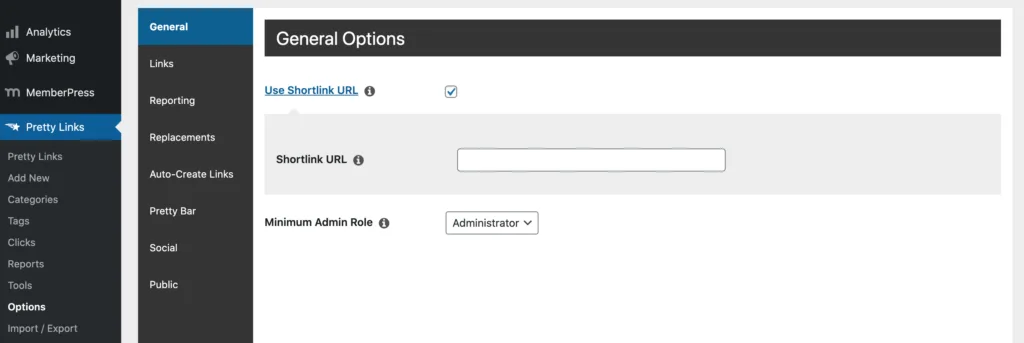
PrettyLinks also has all the features you need to optimize your shortened URLs. This ensures that your links help, rather than hurt, your search engine rankings.
2. Never Pay for “Black Hat” Links
There are many strategies that can have a positive, long-term impact on your SEO. However, there are also “black hat” techniques that may deliver a short-term boost, followed by a long-term fallout.
Essentially, black hat tactics focus on improving your SEO without enhancing the visitor experience. This might involve keyword stuffing or plastering affiliate links all over third-party blogs and forums.
There are many different types of black hat SEO, and it’s important to avoid all of them. For example, some websites specialize in offering backlinks to affiliate marketing sites – for a price.
This should immediately raise a red flag. A legitimate website will only include links that provide real value to its readers, regardless of how much you’re willing to pay.
Search engines are smart and will often mark paid-for links as suspicious. If a large number of questionable URLs point to your site, you may find yourself on a blocklist.
Building legitimate backlinks can take time, but it’s well worth the effort. Instead of being tempted by black hat SEO techniques, we recommend participating in activities such as guest posting on reputable industry blogs and interacting with your audience on social media and forums.
3. Use Link Cloaking Responsibly
Similar to link shortening, when used responsibly, link cloaking can have a positive impact on the visitor experience by creating shorter, clearer URLs. However, it can also be used to obscure the target URL deliberately. This is a violation of Google’s Webmaster Guidelines, which may not bode well for your search engine performance.
Your audience may also interpret cloaked links as an attempt to deceive them. This can hurt your reputation and prevent users from returning to your website.
However, if you opt for a reputable plugin such as PrettyLinks, you’ll be able to shorten and brand your affiliate links without cloaking them completely:
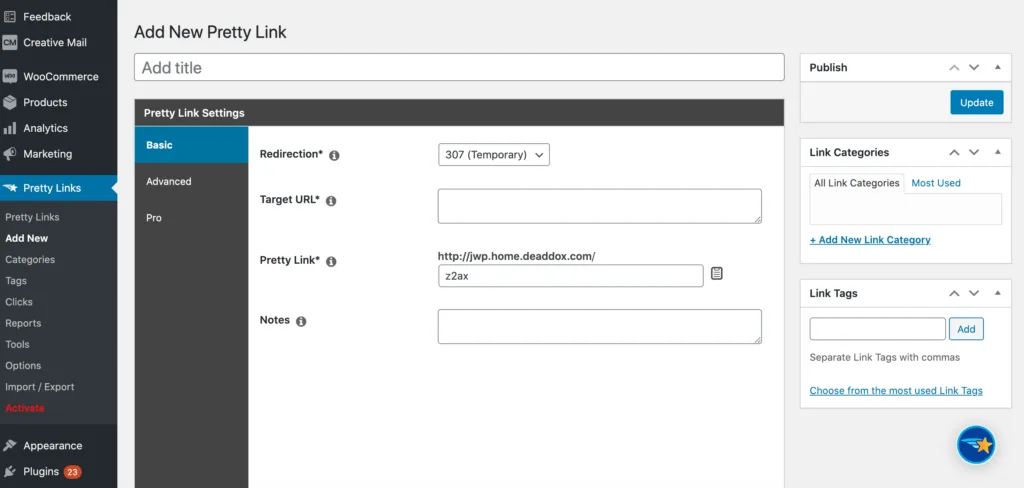
PrettyLinks also gives you the option to add a descriptive slug for each URL. This transparency can help you avoid search engine penalties and improve the visitor experience by clearly communicating the destination of each link.
Conclusion
As with most affiliate marketers, you likely work hard to earn your spot in the search engine results. Unfortunately, a blocklisted URL could put all of your traffic and conversions in jeopardy, potentially through no fault of your own.
To help ensure that you don’t wind up blocklisted by the major search engines, we recommend following these three tips:
- Use a reputable link shortener, such as PrettyLinks.
- Never pay for “black hat” links.
- Use link cloaking responsibly.
Do you have any questions about blocklisted links? Let us know in the comments!
If you liked this article, be sure to follow us on Facebook, Twitter, and LinkedIn! And don’t forget to subscribe in the box below.

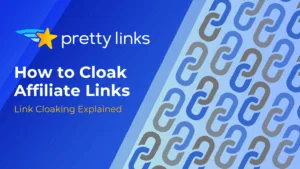
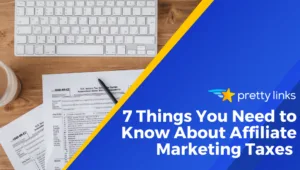
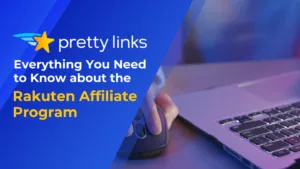

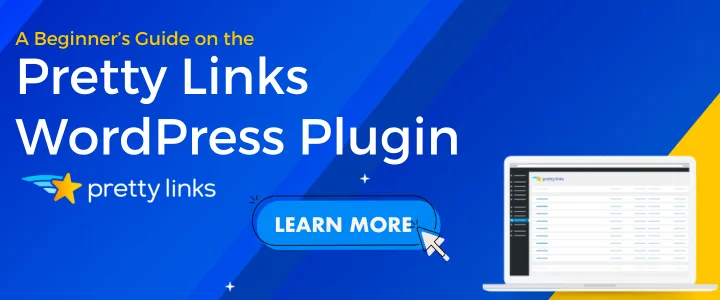
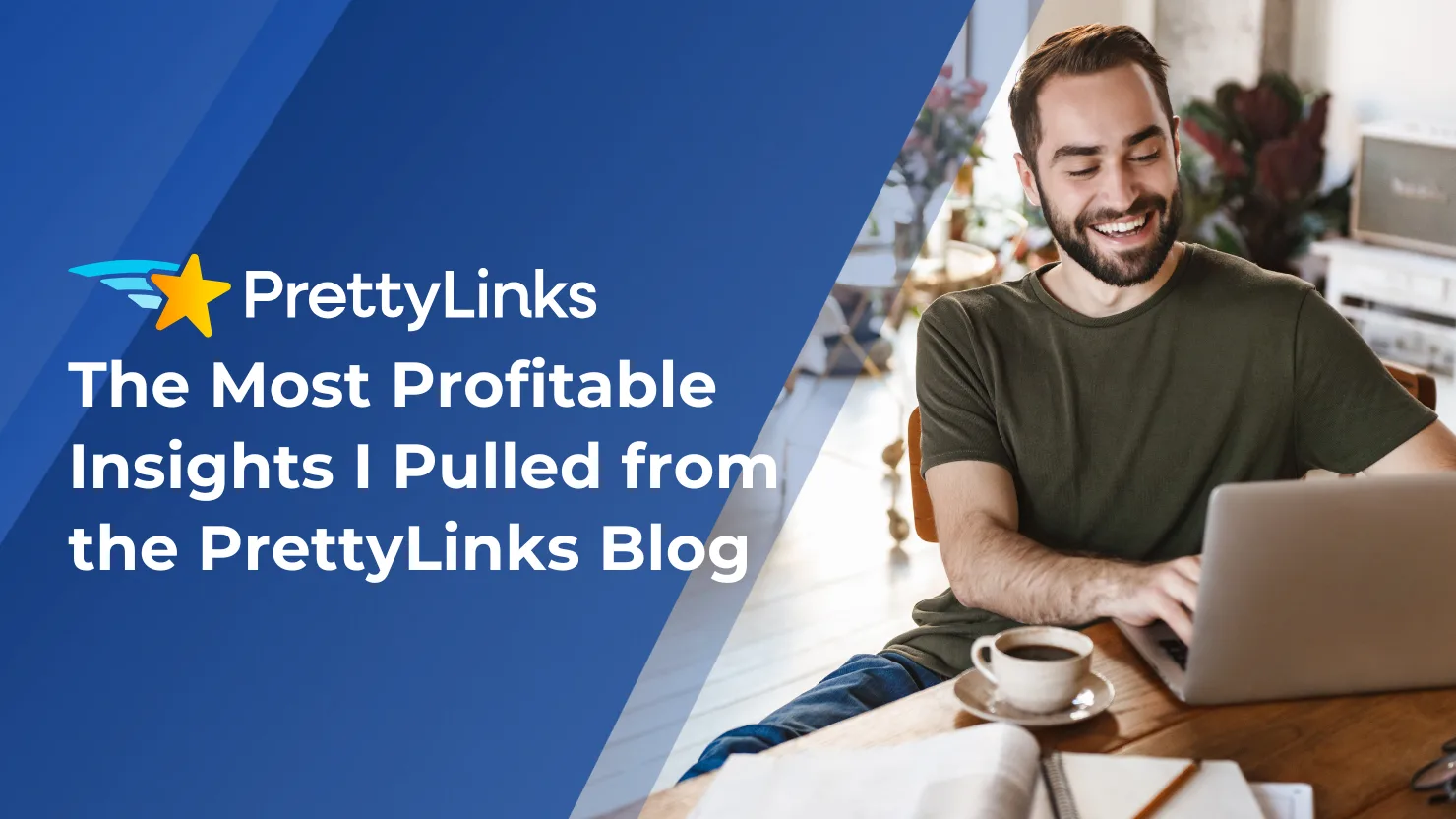

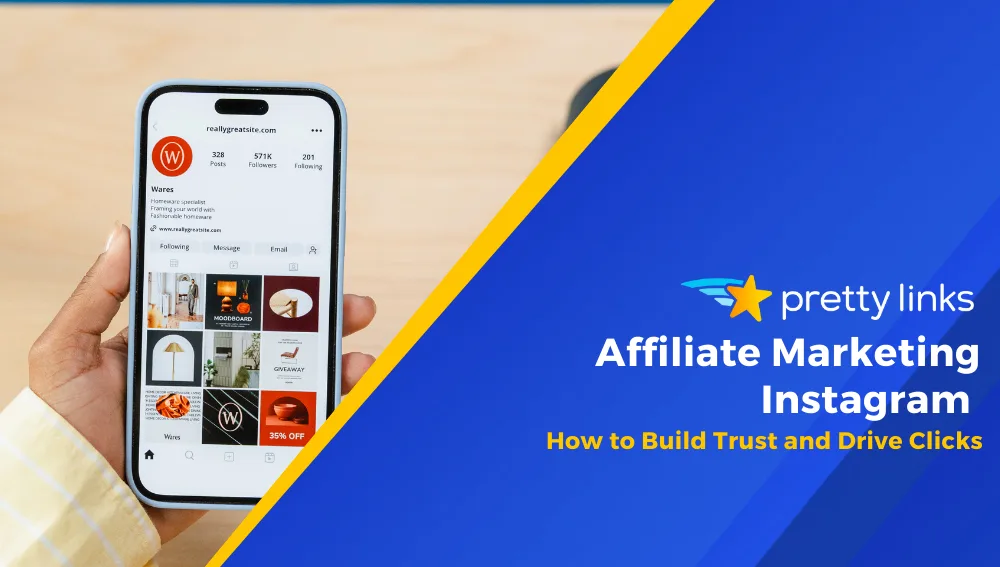
Leave a Reply